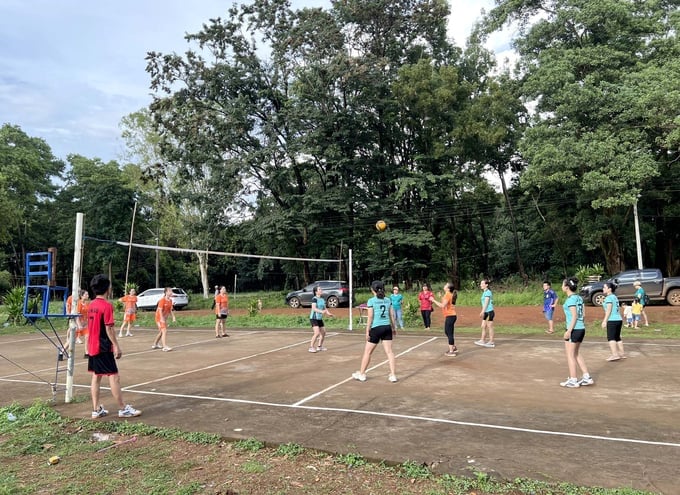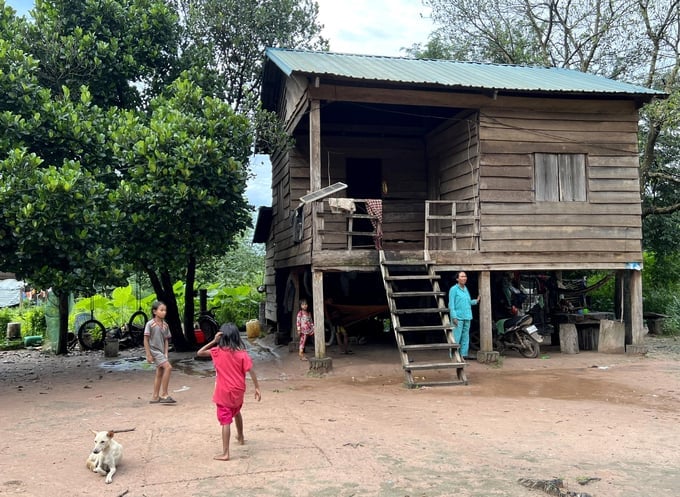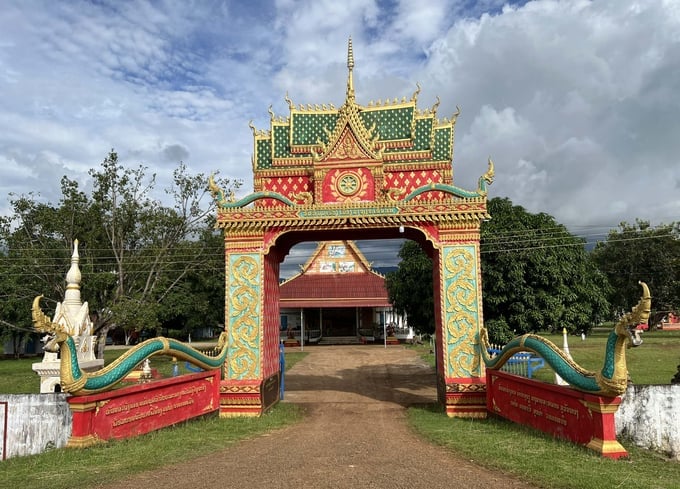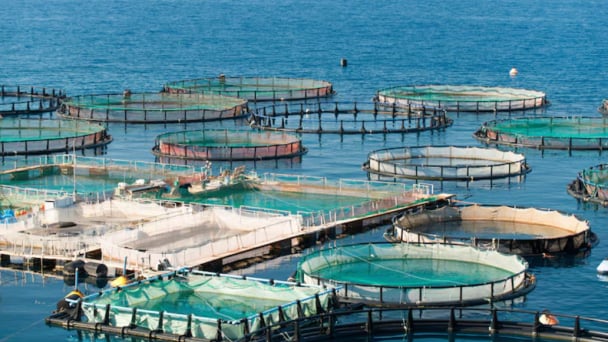June 4, 2025 | 17:23 GMT +7
June 4, 2025 | 17:23 GMT +7
Hotline: 0913.378.918
June 4, 2025 | 17:23 GMT +7
Hotline: 0913.378.918

Female athletes compete in the Volleyball Tournament of Viet Lao Rubber. Photo: Thanh Son.
One day at the end of September 2023, when visiting Viet Lao Rubber Company Limited (Chamasak province, Laos), we were able to directly watch exciting volleyball matches with the participation of dozens of male and female athletes. Many people were participating in the competition and many people came to watch and cheer. All of them are officers, workers, and labourers working at the offices, factories, and farms of Viet Lao Rubber.
Looking at the excited faces and endless cheers of the athletes and fans at the volleyball court, few people can imagine that Viet Lao Rubber is going through a difficult year. In reality, the company is facing major challenges due to high inflation in Laos, increasing prices of fuel and supplies and restrictions on Chinese border gates on imports.
Despite facing such difficulties, according to Mr Pham Van Thong, Deputy General Director of Viet Lao Rubber, the company still ensures production output, revenue, profits and employee income to take care of and stabilize the lives of officers, employees, and workers in the company. Thanks to that, currently, the work, income and life of all workers at Viet Lao Rubber continue to be stable.
Prolonged difficulties are a common situation that rubber companies that are members of the Vietnam Rubber Group (VRG) are facing. Rubber latex prices are still low, market consumption is slow, and prices of supplies and raw materials are increasing. But just like Viet Lao Rubber, other rubber companies are trying to ensure jobs, and income, and take good care of the lives of their labourers.
Mr. Truong Van Cu, General Director of Tan Bien Rubber Joint Stock Company, said that ensuring jobs, stable income, taking care of accommodation and health, policies, and caring for the spiritual life of labourers are the company's top priorities. Mr Cu emphasized: "If you need to be able to settle down to start a business. With a relaxing spirit and good health, workers can complete their assigned tasks".
Feeling the sincere and thoughtful care from the company, even though income has decreased due to low rubber prices, many workers still feel secure and continue to stay with rubber companies. Mr. Tran Van Chat, a Tan Bien Rubber worker, confided: "The company has created many sources of support to improve the lives of workers. The union regularly organizes gift distribution and home repairs for workers. I feel secure working in such a good environment. In the future, I will continue to stick with the company".
The employee policies that VRG member companies are applying not only help the units retain employees in difficult years, but more importantly, they give employees peace of mind to commit for a long time. Thereby, helping the company develop stable and high-quality human resources. Mr. Kara Nay, a worker at Vketi Company (Kratie province, Cambodia), confided: “When the company recruited me as a worker, my husband and I were immediately given a house to live in for free. We receive electricity and water support and receive free medical treatment when sick at the company's medical station. Therefore, my husband and I feel secure in committing to our work here and introducing acquaintances and relatives to join".

Cambodian children play in front of a house for workers built by Dong Nai - Kratie Rubber Joint Stock Company (Cambodia). Photo: Thanh Son.
Currently, workers at VRG member companies in Vietnam, Laos and Cambodia all earn an average salary higher than the local regional minimum wage.
The average income in 2022 for the entire Group is VND 8.44 million/person/month. In Vietnam, the average income of workers in 2022 is VND 8.8 million/person/month. In Cambodia, the average income of workers is VND 7.8 million/person/month (about $ 338/person/month), much higher than the current average income of workers in this country. In Laos, the estimated average income of workers is VND 7.3 million/person/month (about $ 314/person/month), much higher than the current general income level in Laos.
Not only ensuring income, and taking care of the lives of officials and employees, rubber companies also actively participate in building new rural areas, supporting and developing communities in the area.
Mr. Nguyen Hong Thai, Deputy General Director of Tay Ninh Rubber Joint Stock Company, shared that, each year, the company has contributed a small but significant part to the construction of new rural areas in the locality. The company has participated in programs such as lighting up country roads, building roads and especially connecting roads between localities.
Social security activities for communities and localities are also being carried out regularly and effectively by rubber companies. Mr. Pham Van Thong said that Viet Lao Rubber is very interested in welfare activities for Champasak district and province, such as investing in building roads, schools, pagodas... In particular, with the company's support in building electric lines for the village, currently, all villages in the Bachiang and Sanasumbun districts of Champasak province have electricity for daily life and production.
In 2022, in Cambodia, VRG has continued to invest in many welfare and social security projects, traffic infrastructure projects, electricity and water. This includes semi-permanent worker housing, single and collective houses, drilled wells, religious buildings, schools, domestic electrical systems, bridges, underground overflows, sewers, and roads. The projects have contributed to improving the lives of workers and communities around the project area, promoting economic growth and social security in Cambodia.

A pagoda built by Viet Lao Rubber in Champasak province, Laos. Photo: Thanh Son.
During the process of investing abroad in Laos and Cambodia, many social security investment projects of VRG and its members have been highly appreciated by the host country's Government and announced in many media. Simultaneously, the project is increasingly trusted by local people, many of whom have become workers and officers attached to VRG companies.
Translated by Hoang Duy

(VAN) Technology is redrawing the map of Vietnamese aquaculture: more modern, greener, and more sustainable.

(VAN) Novel process harnesses machine learning to reveal groups of genes that determine how efficiently plants use nitrogen.

(VAN) Several scientists and farmers are experimenting with soil treatment in some key durian-growing regions such as Cai Lay (Tien Giang), Dak Song, Gia Nghia, and Dak R’lap (Dak Nong).
/2025/05/25/4127-3-073637_820.jpg)
(VAN) Thanks to the promotion from an FAO-implemented project, vegetable production in greenhouses in Moc Chau has seen strong development, from 1.5 hectares in 2021 to nearly 50 hectares in 2024.

(VAN) FAO has recently supported USD 140,000 to implement the project 'Risk mitigation human-animal interface risks through disease control initiatives in pig farming.'

(VAN) The People's Committee of Tra Vinh province has approved an adjustment to the investment policy for the Green Hydrogen Plant project, increasing its area to approximately 52.76 hectares.
![Reducing emissions from rice fields: [2] Farmers’ commitment to the soil](https://t.ex-cdn.com/nongnghiepmoitruong.vn/608w/files/news/2025/05/05/dsc08881jpg-nongnghiep-140632.jpg)
(VAN) Clean rice cultivation model in Thuong Tan commune, Bac Tan Uyen district, is assisting local residents in achieving sustainable agriculture by substantially reducing costs, increasing productivity, and protecting the environment.